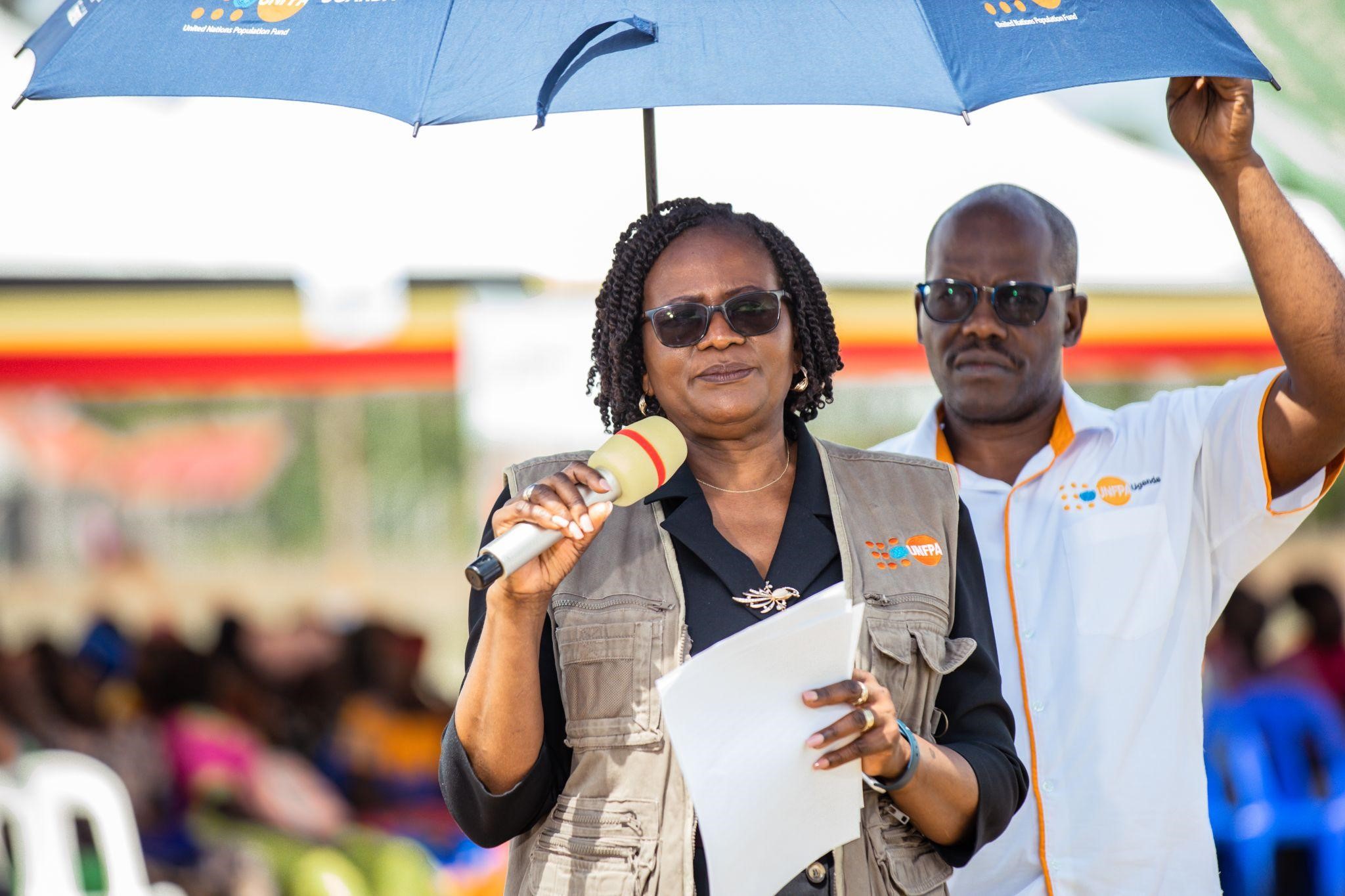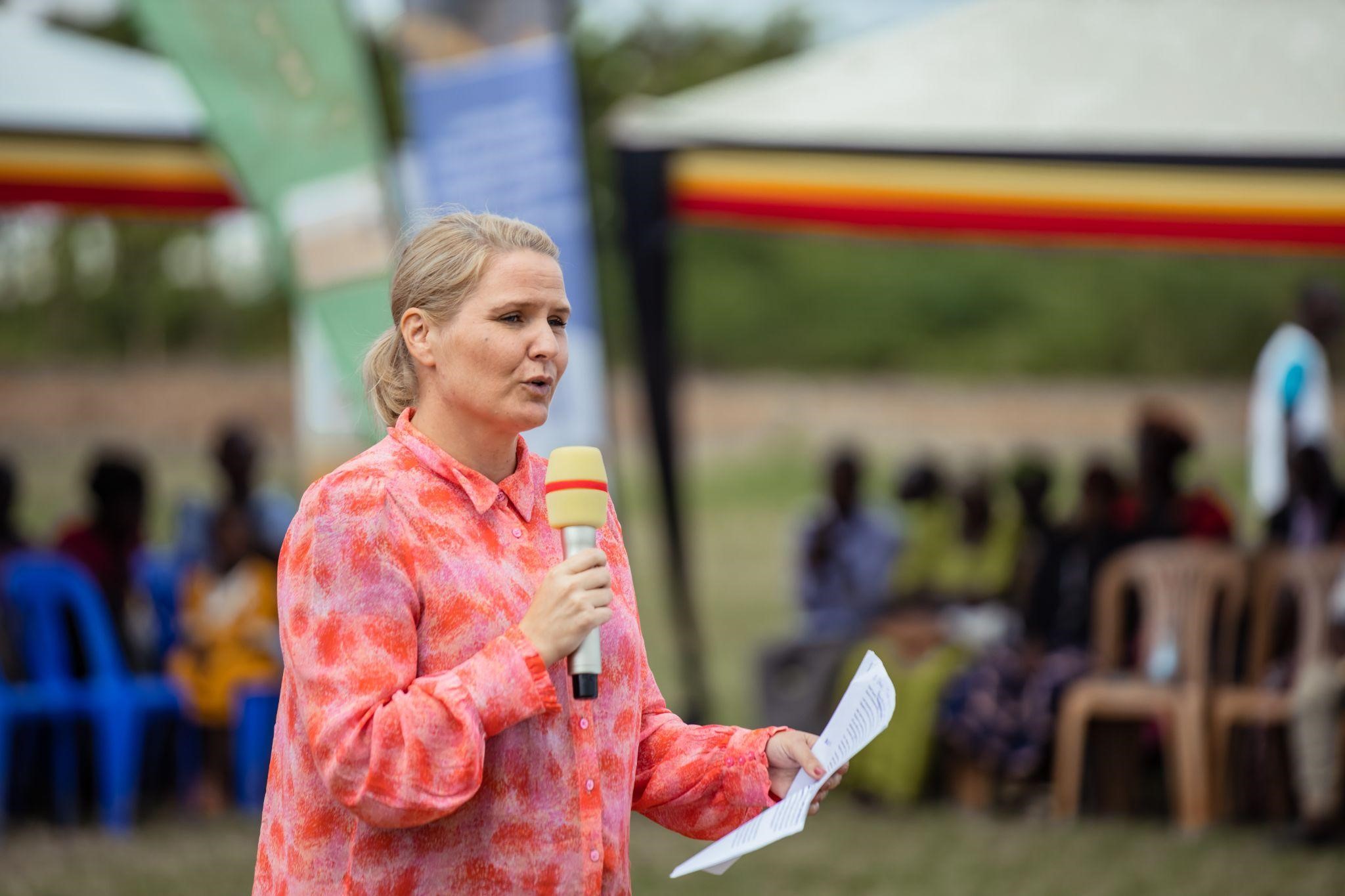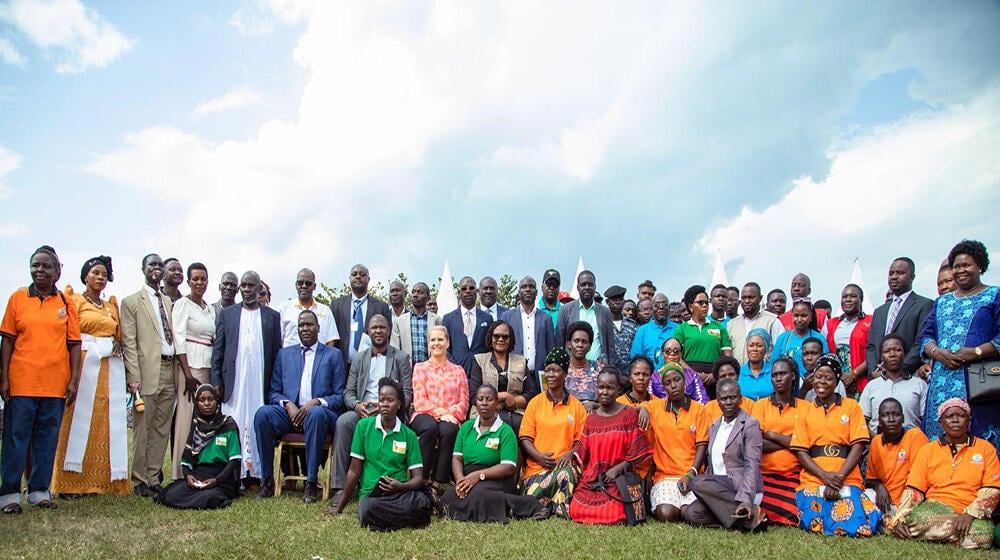On May 29th, 2024, UNFPA-the United Nations Population Fund, through the support of the Embassy of Iceland in Uganda and the Maternal Health Thematic Fund (MHTF), joined the Ministry of Health, to mark the International Day to End Obstetric Fistula (IDEOF) in Namayingo district. This annual event serves as a poignant reminder of the challenges faced by women worldwide and in Uganda due to obstetric fistula, while also celebrating progress made and advocating for further action.
The IDEOF 2024 commemoration was a call to arms, urging stakeholders to unite in the fight against obstetric fistula by addressing systemic issues and promoting preventive measures. Key among the root causes of fistula in Uganda, particularly in Namayingo, are the high rates of teenage pregnancy and gaps in maternal health services.
The theme for this year, "Breaking the Cycle: Preventing Fistula Worldwide," underscored the importance of preventive measures in tackling the root causes of this devastating condition.
Leading up to the main event, UNFPA worked with the Ministry of Health and partners to conduct a series of pre-events to raise awareness and engage with communities. One initiative was a medical camp where women were screened for fistula and accessed maternal health services, including family planning. Additionally, the team conducted a community dialogue session providing a platform for community members to discuss the challenges and stigma surrounding fistula, aiming to break down barriers to care.

The community dialogue was especially important because it provided insight into the community’s perceptions of obstetric fistula and the challenges faced by women in Namayingo. Survivors of obstetric fistula who shared their struggles and triumph of overcoming fistula, calling on the community to support anyone facing the condition.
Participants pointed out that strong myths, such as using herbs to treat fistula, are key barriers to accessing care by those affected. Cultural leaders dispelled the myths that Fistula is a curse. Young people called on the government to strengthen sexual and reproductive health services, especially family planning, so that they can have children when they are ready.
“There is a lot of sensitivity surrounding childbirth and when a woman gives birth and gets fistula, communities immediately point to the curse of witchcraft,” one participant commented.
“I got fistula after they operated on me and my baby died inside me. I was only 17 years old. I was shunned by the community and moved around seeking care until I got operated by qualified medical personnel,” shared a survivor. A common thread for all the women was childbirth at a young age.
A highlight of the pre-events was a spirited netball and football tournament that brought together men, women, girls and boys from the region and across Namayingo district to raise awareness about obstetric fistula.
The culmination of the commemoration saw the participation of dignitaries from the Embassy of Iceland in Uganda, the Ministry of Health and various partners. The event featured a march through the town of Namayingo, entertainment performances by fistula survivor groups, and speeches from local leaders and stakeholders.
During her speech, Ms Gift Malunga, UNFPA Country Representative, acknowledged Uganda's progress in improving maternal healthcare but emphasized the persistent challenges posed by obstetric fistula. She called for intensified efforts to address the root causes of fistula and urged stakeholders to tackle the three delays that often prevent women from accessing timely care.

The Head of Mission and Charge D'Affaires of the Embassy Iceland, Ms Hildigunnur Engilbertsdóttir, emphasized prevention as a key intervention for fighting fistula. She reiterated the Embassy’s commitment towards ending obstetric fistula through the 3 year programme in Namayingo.
Speaking on behalf of the Ministry of Health, Dr. Ronnie Bahatungire, Commissioner Clinical Services, reaffirmed the entity’s commitment towards improving maternal health services in Uganda.
The Guest of Honor, Hon. Persis Namuganza, Minister of State for Lands, Housing, and Urban Development, commended Namayingo district for organizing the national event. She thanked development partners and the government for their efforts in providing healthcare services and stressed the importance of community involvement in promoting maternal health.
In conclusion, the IDEOF 2024 commemoration served as a rallying cry for collective action to end obstetric fistula. By focusing on prevention, addressing barriers to care, and fostering community engagement, Uganda and its partners are taking significant strides towards breaking the cycle of fistula and promoting the health and wellbeing of women and girls nationwide.
- Story by Prisca Uwera Kalenzi


